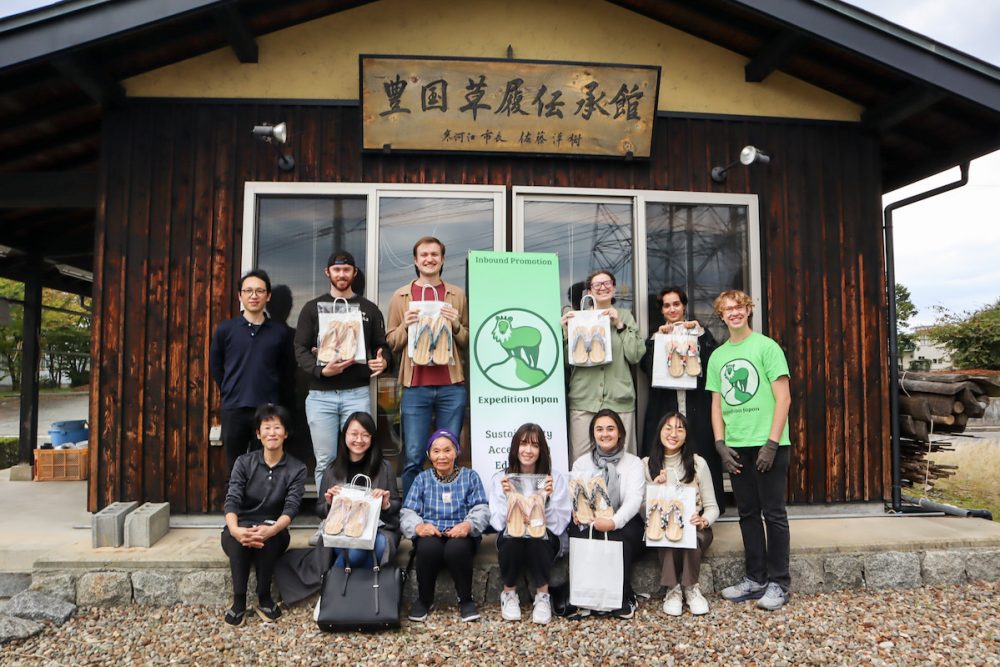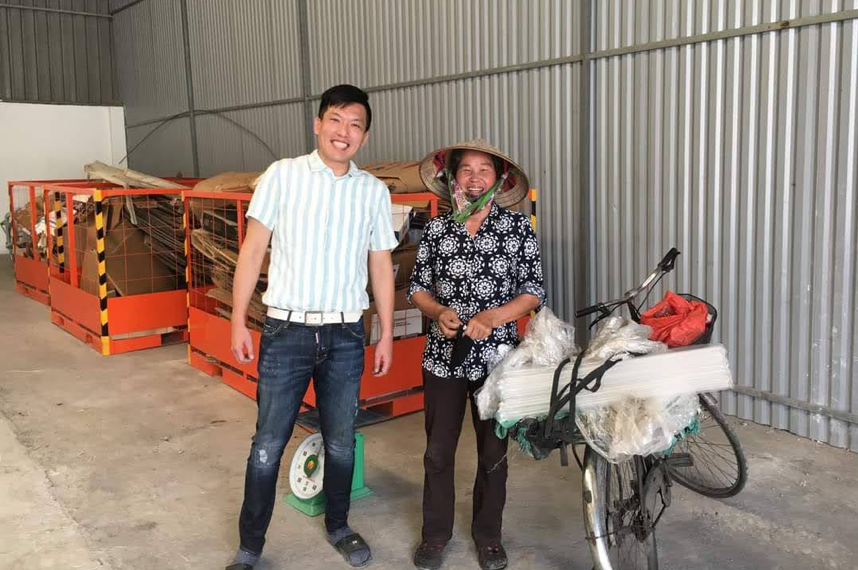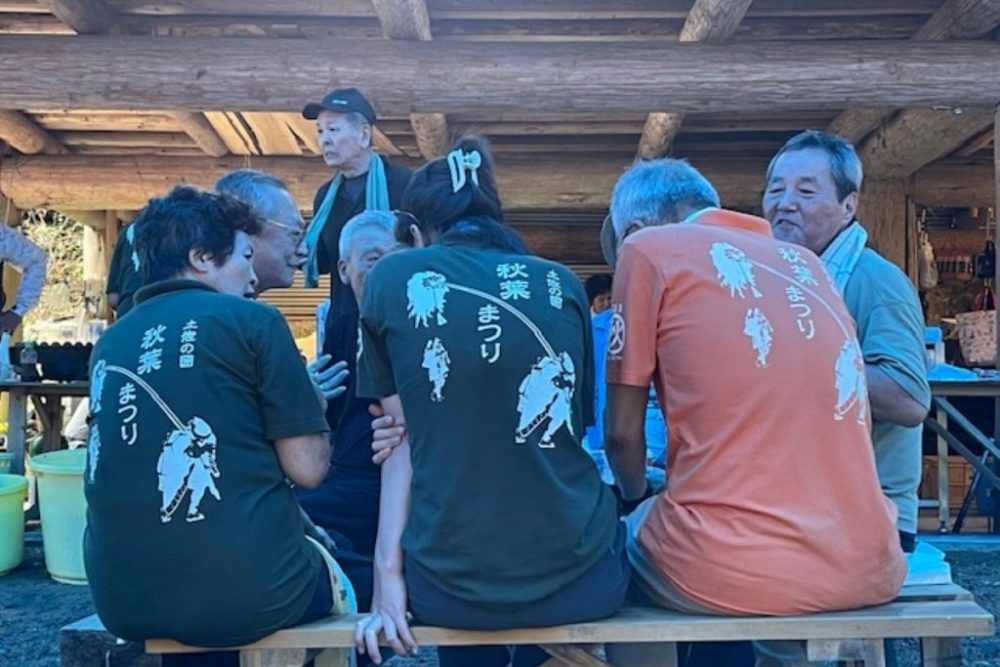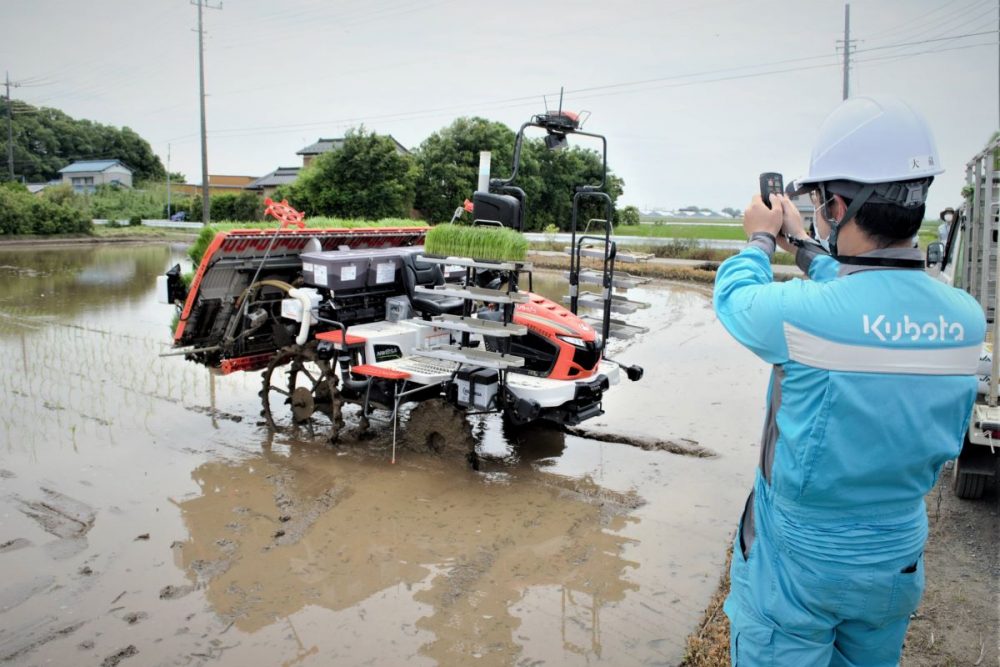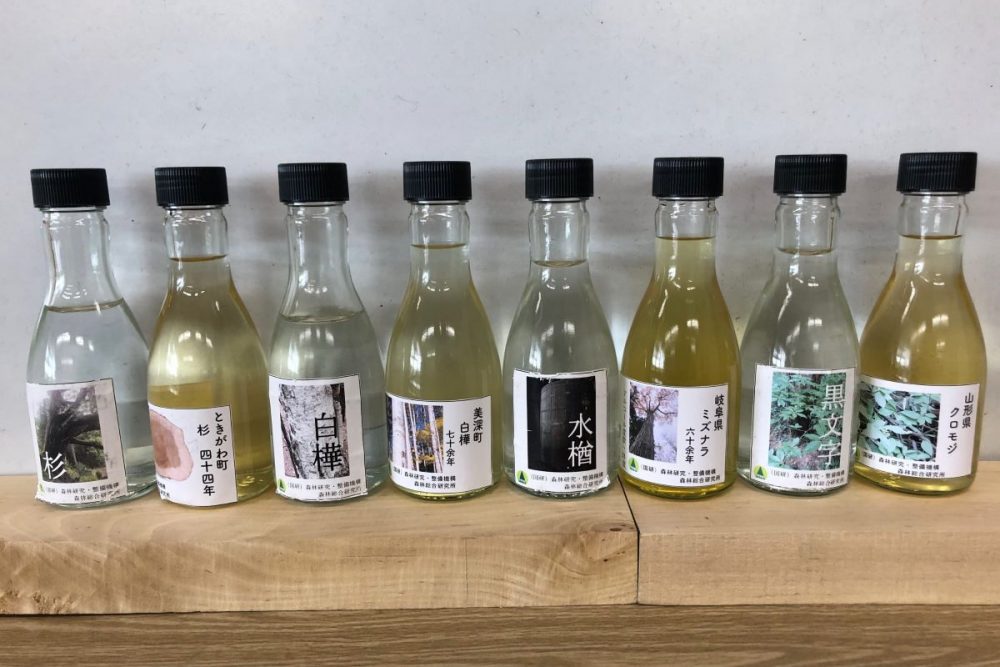Craft Beer Brewery Embraces Employment Opportunities for People with Disabilities
In Osaka, a row of abandoned old homes was reborn into a craft beer brewery and restaurant that actively employ people with disabilities in the community.
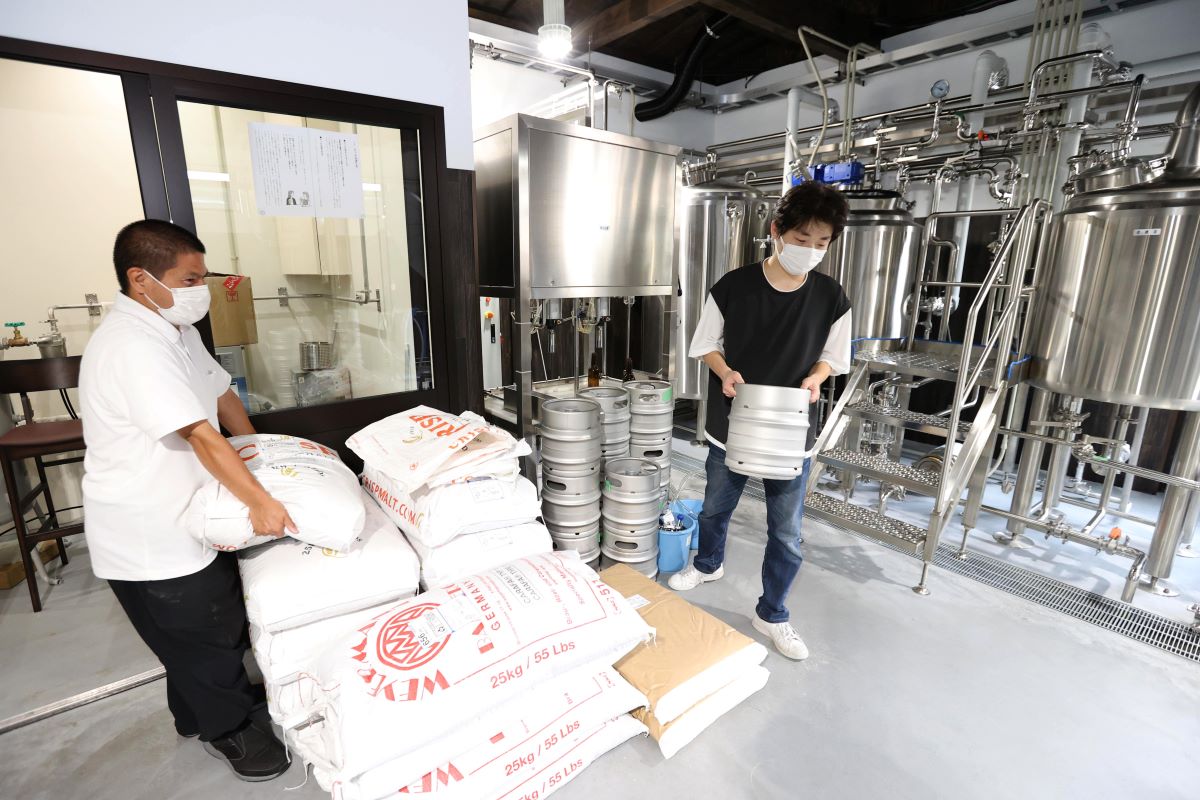
このページを 日本語 で読む
The Gamo 4-Chome area of Joto Ward, Osaka, nicknamed “Gamoyon” by locals, is now home to a brewery where craft beers are brewed by employees with disabilities. The brewery was built in vacant kominka (traditional Japanese houses).
The Gamo4 Nigiwai Project, a general incorporated association that works to revitalize the community's kominka, has partnered with a nonprofit organization focusing on welfare to run the brewery. In addition to selling to local restaurants and other businesses, the brewery also aims to increase sales and raise wages through its attached beer restaurant.
Vacant Houses Get Another Life
The GAMO4 Brewery is located northeast of Osaka Castle in a corner of the city that still retains the atmosphere of old downtown. Five 100-year-old row houses on a 150-square-meter piece of land have been transformed into a brewery and beer restaurant.
The equipment necessary for beer production includes three 300-liter tanks where the beer is aged for a month.
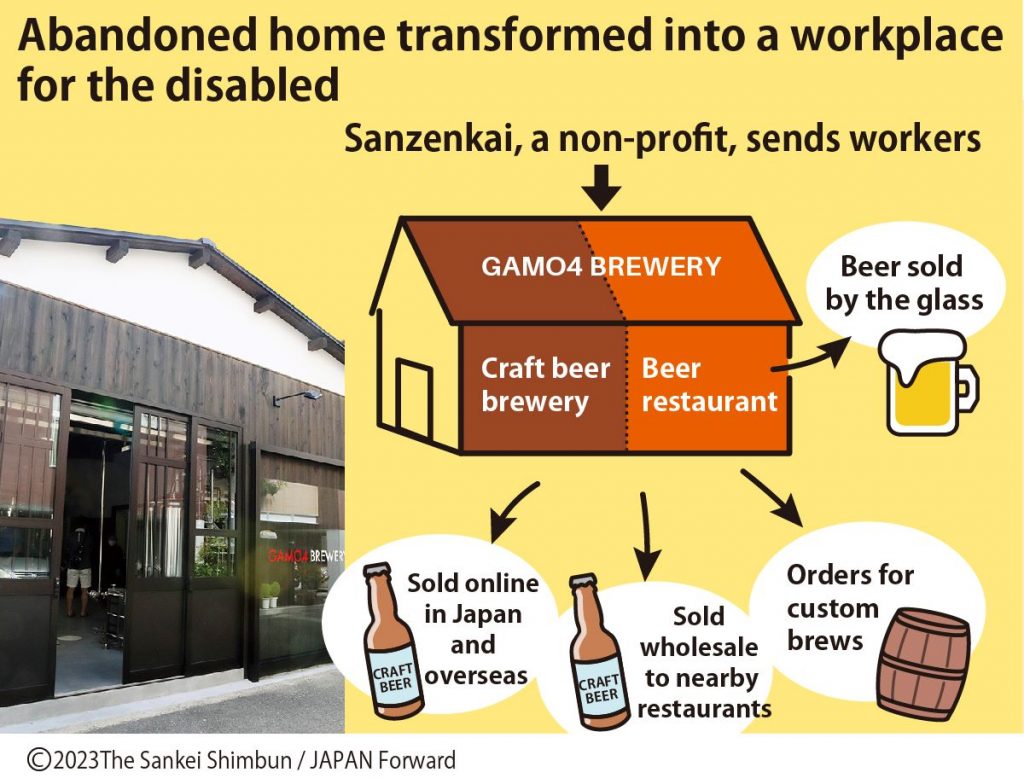
The brewery is operated by Sanzenkai, a nonprofit organization providing employment support to people in the ward with disabilities. Users of Sanzenkai’s services take turns working there.
In addition to performing tasks like cleaning floors and tanks and loading ingredients to make the brews, workers also bottle and label the beer. At the restaurant, they clean and help to prepare and serve the food. Work is assigned based on aptitude.
One worker with an intellectual disability comments, “It’s difficult work that includes a lot of stooping and lifting, but sending the finished beer to the tanks for aging is very rewarding.”
Sanzenkai started sending workers to the brewery as a form of employment outside of welfare facilities, known as non-facility work. According to Mr Ueyoshi, chair of the association, they intend to change their business model to one that aligns with national employment support services, such as a “Type B business for continuous employment support,” where workers are paid a wage based on the work they perform, or a “Type A business for continuous employment support,” where workers are paid at least minimum wage under an employment contract.
In addition, the association hopes to move into the general corporate sector. According to Ueyoshi, based on operations so far, this will be achievable if they provide the proper support.
Towards Wage Increases
There are many hurdles for people with disabilities looking to work at typical companies, so they tend to find workplaces under the government’s employment support system. According to a 2020 Ministry of Health, Labour and Welfare survey on wages, the average hourly wage at Type B establishments was only JPY ¥222 (just over $1.50 USD).
Kinya Wada, representative director of the Gamo4 Nigiwai Project, realized the need to improve this situation. Since 2008, the project has been renovating vacant houses in the community as restaurants. The group then decided to use these restaurants as places for people with disabilities to work. They wanted to create a specialty product to represent the Gamoyon area and turned their attention to craft beer, which was experiencing a boom in Japan.
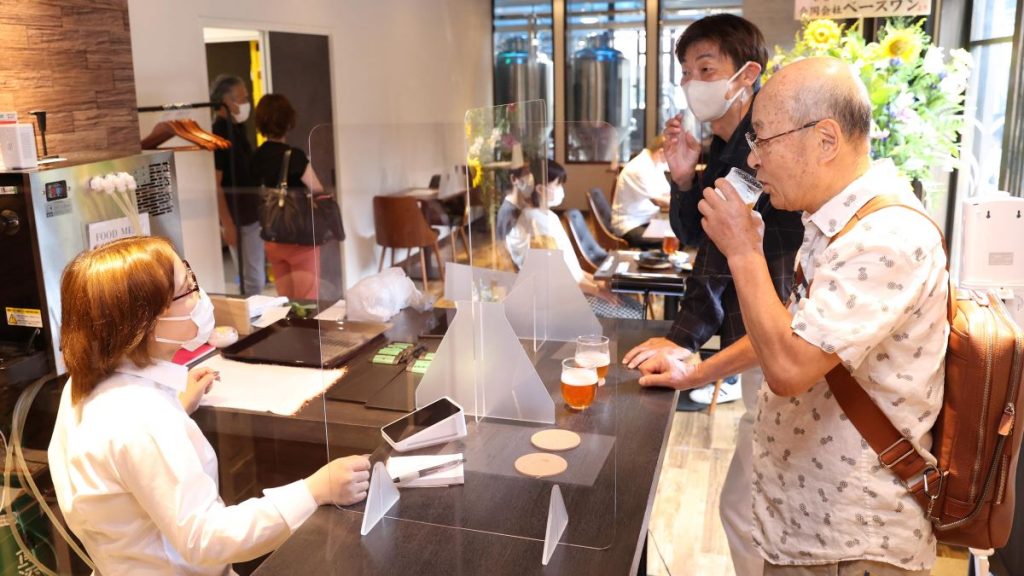
Success hinged on being able to serve Gamoyon beer in the area's restaurants.
Craft beer breweries involve a wide range of processes and operations, from procuring ingredients to sales, which allow them to take advantage of the skills of a diverse group of people. The project was introduced to Sanzenkai by a welfare worker in the ward. The two groups clicked well together due to their focus on the same issues. Following two years of preparation, the brewery became a reality.
Working Hard
The brewery and store were designed to look polished in a way that allows people to work there with pride.
Windows allow both restaurant customers and people passing by to see the inside of the brewery.
“Customers are thankful for the people that worked hard to produce the beer. At the same time, we hoped that the sight of customers enjoying their beer would put a smile on the faces of the people with disabilities working at the brewery,” says Wada.
“There are many cases where people lose confidence and quit their jobs if they experience a failure at work, even after finding employment,” reports Ueyoshi. “Society’s understanding is growing, but it is still not enough. I want people in the community to see the efforts of people with disabilities," he stresses.
The Gamo4 Nigiwai Project leases the building from Sanzenkai and also cooperates with the association to make the project a success. Using his experience in rehabilitating traditional old houses into restaurants, Wada is also involved in developing marketing ideas.
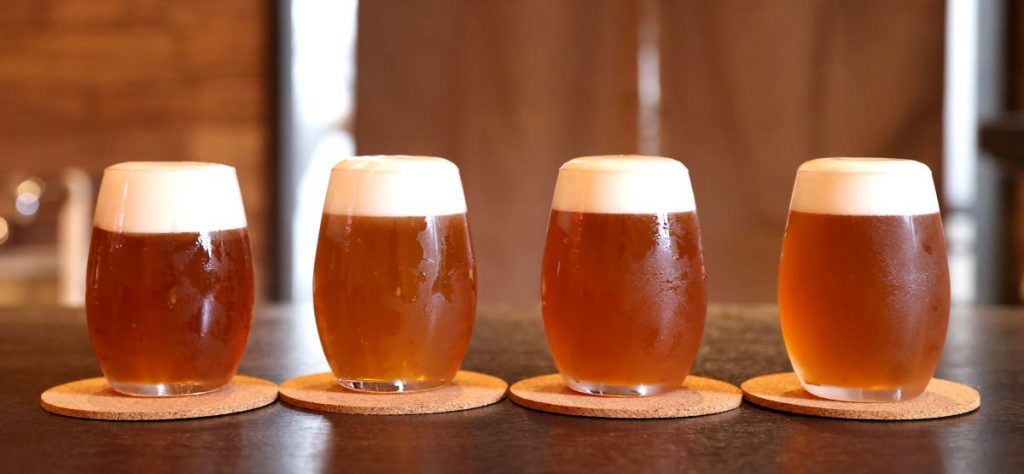
The name of the brewery's debut product is “MOGASTAR,” a play on “GAMO.” With a label designed by members of the public, the brew went on sale in late 2022. Local restaurants have also been asked to add the craft beer to their menus.
The brewery also accepts orders for customized original beers, which can be purchased by the tank and are marketed to local bar chains. Online sales of bottled beer are also available.
Wada playfully asks, “What will we do if we sell so much that we have to open a second factory?” The beer from this brewery is full of hopes and dreams.
High Product Value
More and more craft beer breweries are employing workers who typically have a hard time finding work, like the elderly and people with disabilities.
In 2018, Cyclo Inc., an operator in the nursing and medical care field in Osaka's Nishinari Ward, an area with many welfare recipients, established a craft beer brewery. This brewery also employs the elderly and people with disabilities. Its debut product – the Nishinari Riot Ale – attracted attention for its name. Since then, the brewery has continued to release new products, developing more than 90 brews to date.
In the Nishijin area of Kyoto, people with developmental disabilities and autism are employed at Nishijin Beer. The brewery was established in 2017 by a nonprofit called HEROES (now a social welfare corporation called Kikuhokokai).
Nishijin's best seller is the Yuzu-Muge, which is popular among women. The company also produces limited-edition beers made from domestically produced malt, hops, and other ingredients.
These beers are popular not just for their contributions to society, but also for their high product value.
このページを 日本語 で読む






